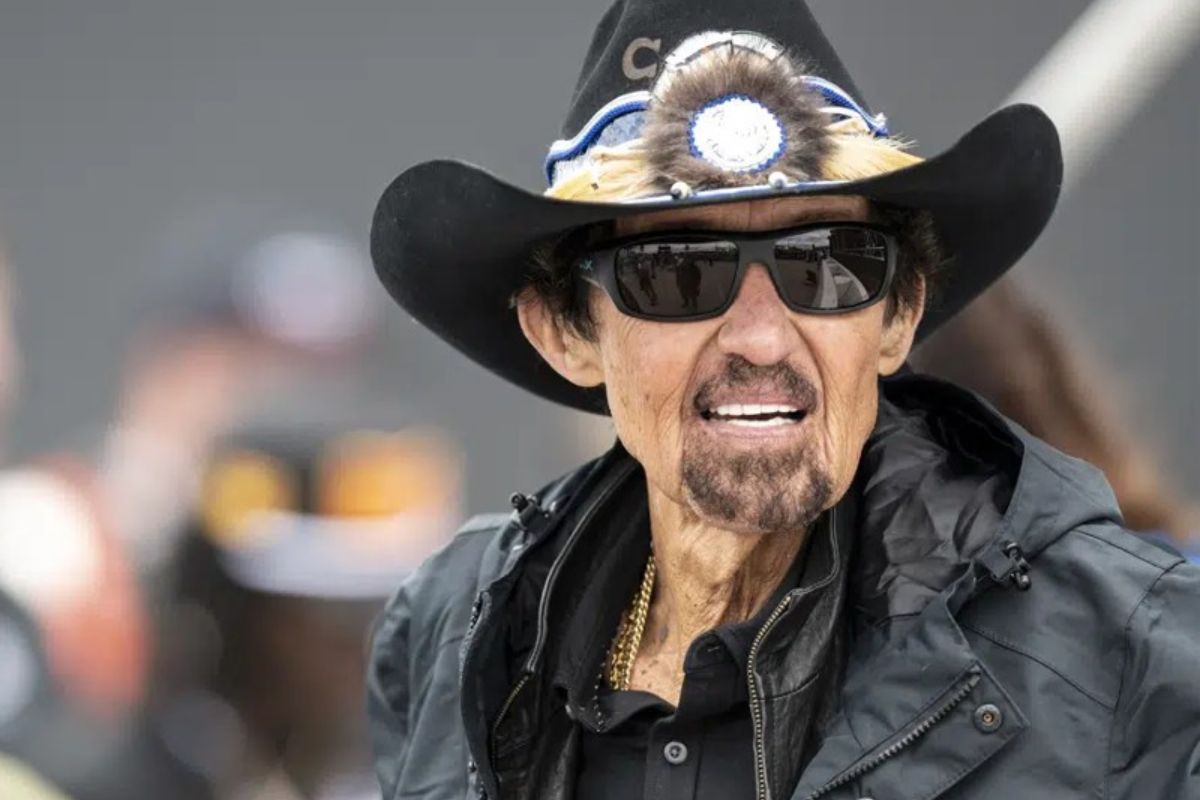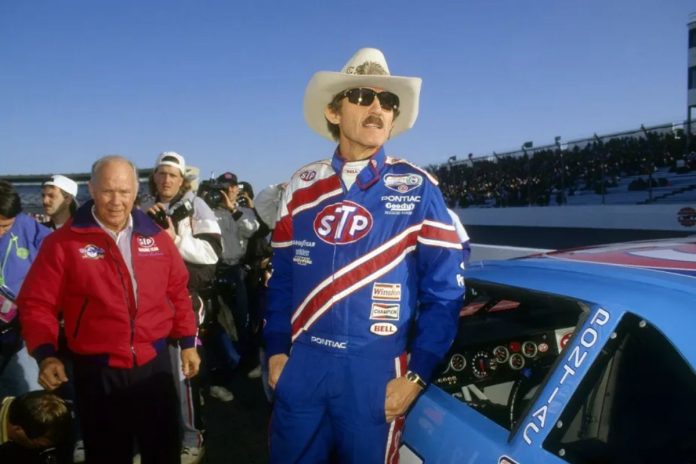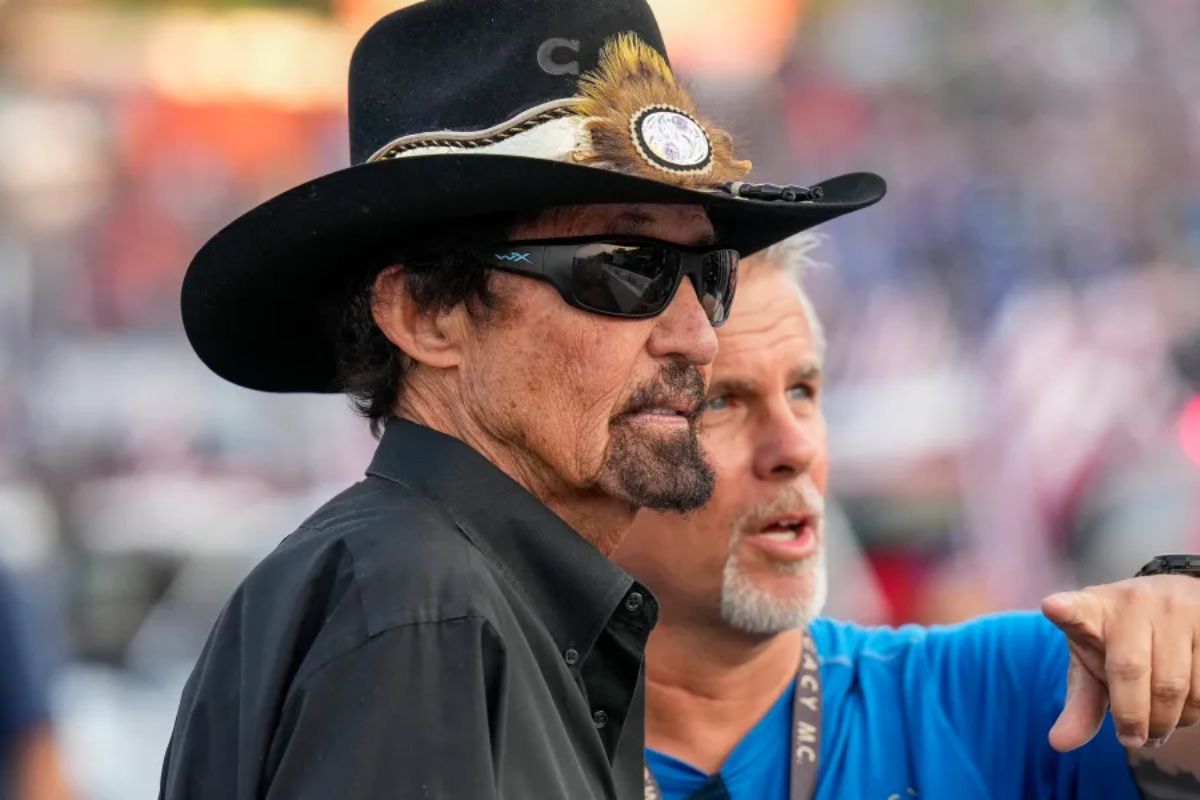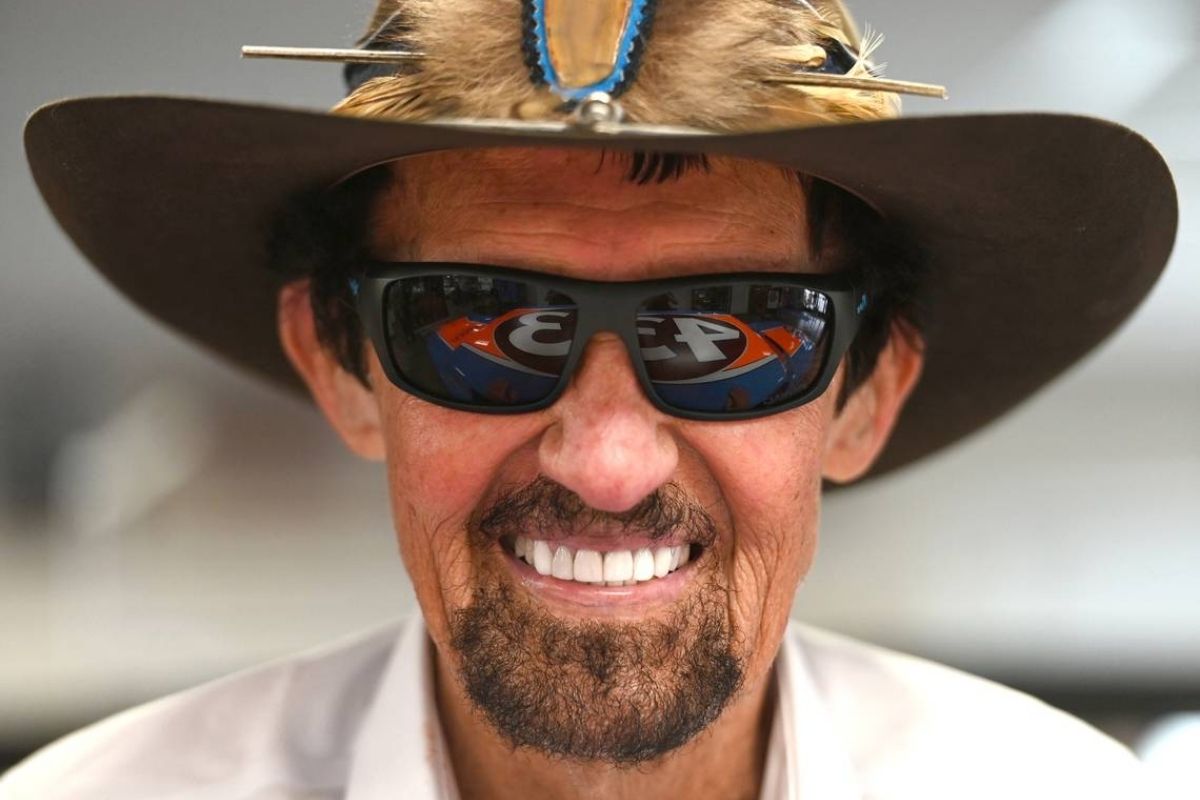Richard Petty Slams NASCAR: In a bold move that has stirred the NASCAR community, racing legend Richard Petty has openly criticized the prevalent practice of air blocking in the sport, calling for the introduction of penalties to curb this tactic. His proposition, aimed at reinstituting a purer form of racing, suggests that excessive defensive driving undermines the skill and strategy that should define competitions. By pushing for the enforcement of a black flag rule after a certain number of blocks, Petty frames his argument around the ideals of fairness and the inherent risks associated with blocking.
Key Takeaways
- Richard Petty criticizes air blocking in NASCAR, claiming it reduces traditional racing values.
- Petty demands for introducing harsher penalties, such as a black flag, for blocking.
- He argues that stricter rules against blocking would enhance race safety and fairness.
- Blocking, according to Petty, detracts from driver skill and strategic racing.
- He calls for NASCAR rule changes to prioritize driver ability over defensive maneuvers.
The Problem of Air Blocking in NASCAR
The technique involves a leading car intentionally aligning its trajectory with a trailing car within the same lane, thereby disrupting the airflow crucial for maintaining high speeds and maneuverability. This strategic maneuver has increasingly become a focal point of controversy due to its implications on race dynamics and safety. Air blocking is rooted in the physics of aerodynamics in motor racing.
Cars in motion generate a slipstream, a zone of reduced air resistance, behind them. Drivers typically use this slipstream to gain speed and facilitate overtaking. However, by manipulating their position strategically, leading drivers can interfere with this aerodynamic advantage, compelling pursuing drivers to contend with turbulent air. This not only reduces the trailing car’s speed but also its tire performance and fuel efficiency. The controversial nature of air blocking lies in its dual impact on competition and safety.
From a competitive standpoint, it inhibits overtaking, potentially dulling the spectacle of racing. More critically, it increases the risk of accidents. The trailing driver, struggling with decreased downforce and grip from disrupted airflow, may lose control, leading to collisions.
Richard Petty’s Disapproval
Seven-time Cup Series champion Richard Petty has publicly criticized the prevalent use of air blocking in NASCAR, demanding for a return to more traditional racing ethics. In a statement shared via his Instagram, Petty articulated his stance against the tactical maneuver, which he claims he never employed during his career. His disapproval stems from a belief that air blocking undermines the purity and skill-based nature of stock car racing.
Petty talked about earlier times in NASCAR’s history, when there was an unspoken code among drivers to race cleanly and give ample room on the track. This, he argues, not only allowed for more strategic racing but also bolstered safety by reducing the likelihood of collisions caused by aggressive blocking.
View this post on Instagram
Petty Calls for Action
Richard Petty has escalated his critique of modern NASCAR strategies by calling for the implementation of stricter penalties against air blocking. The racing legend, often referred to as ‘The King,’ suggested that the introduction of a black flag rule could be a pivotal solution. Petty proposes that drivers should be allowed only one or two blocks before a black flag is issued, penalizing them for excessive blocking.
| Aspect | Detail |
|---|---|
| Current Rule | No specific penalty for air blocking |
| Petty’s Proposal | Implement black flag after 1-2 blocks |
| Intended Outcome | Reduce risky maneuvers and maintain race integrity |
| Enforcement Challenge | Determining the threshold for blocking |
| Potential Impact | Could alter strategic approaches in races |
The enforcement of such a rule would require NASCAR officials to closely monitor races and make judgment calls that could be subjective. Petty’s call for action reflects a desire to evolve NASCAR into a discipline where fair play and driver prowess are at the forefront, potentially leading to a shift in how races are strategized and executed.

The Danger of Blocking
Blocking, a prevalent strategy in NASCAR, markedly increases the risk of on-track collisions by making the defending car more susceptible to impact from competitors. This tactic, while often used to maintain a lead or control the pace of the race, inherently involves significant risks. The primary danger is the increased possibility of physical engagement between cars, which can lead to more severe consequences than merely losing a position.
When a driver chooses to block, they basically force the trailing driver to make a split-second decision. This often results in one of three outcomes:
- The trailing driver may attempt to brake abruptly, which can cause the cars following closely behind to collide.
- The trailing driver might swerve to avoid the block, potentially losing control and causing an accident.
- Persistent blocking may lead to intentional or aggressive maneuvers from the trailing driver, escalating the risk of contact.
Blocking’s Impact on Racing
Considering the outlined risks, it is also important to evaluate how the practice of blocking influences the general dynamics and fairness of racing competitions. Blocking, where a driver deliberately impedes the advancement of trailing competitors to maintain position, has become especially pronounced with the Next-Gen cars in NASCAR. This shift is largely attributed to their reduced horsepower, which compels drivers to adopt more defensive strategies to preserve their lead.
The strategic deployment of blocking can lead to significant changes in race outcomes. It not only affects the immediate competitors involved but can also alter the pacing, strategy, and entire flow of the race. For instance, a lead driver’s decision to block can bottleneck the field, creating a high-density cluster of cars that increases the risk of contact and crashes. This was vividly demonstrated in the 2012 Cup Series race at Talladega Superspeedway, where blocking maneuvers precipitated a major multi-car wreck.
Beyond the immediate physical risks, blocking also raises questions about the fairness and sportsmanship within NASCAR. The tactic can be seen as a skillful defense, yet it also skirts the edge of competitive ethics, potentially detracting from the purity of racing where overtaking is a fundamental aspect. This dual nature of blocking causes debates among stakeholders about its legitimacy as a racing strategy.
News in Brief: Richard Petty Slams NASCAR
The critique by Richard Petty of NASCAR’s prevalent air blocking strategies underscores a significant debate within the motorsport community. It emphasizes the need for regulatory changes to improve the authenticity and competitiveness of races. By demanding for penalties against excessive blocking, Petty highlights concerns regarding safety and race integrity. Instituting such measures could potentially restore a focus on driving skill and strategic acumen. This alignment would bring NASCAR more closely in line with its foundational values of fair and dynamic competition.
Our Reader’s Queries
Q. Why is Richard Petty called the King?
A. Richard Petty, dubbed “The King,” boasts an unparalleled track record in NASCAR. He holds the record for most wins (200), poles (123), tied for most championships (seven), most wins in a season (27), Daytona 500 victories (seven), consecutive wins (10), and starts (1,185).
Q. When did Richard Petty stop racing?
A. Petty retired in 1992 after competing in 1,184 NASCAR events, securing victory in 200 of them. His Daytona 500 triumphs occurred in 1964, 1966, 1971, 1973, 1974, 1979, and 1981.
Q. Who did Richard Petty sell his race team to?
A. In 2021, Maury Gallagher, the founder of GMS Racing and chairman of Allegiant Air, acquired Richard Petty Motorsports. This acquisition marked a significant development in the motorsports landscape. Richard Petty, a legendary figure with a record 200 Cup wins and a revered status in the NASCAR Hall of Fame, played a pivotal role as the public face of the organization. Gallagher’s purchase of Richard Petty Motorsports underscores the ongoing evolution and strategic moves within the racing community.
Q. How many Daytona 500 did Richard Petty win?
A. Richard Petty, known as “The King,” rightfully holds the record for the most all-time victories in the Daytona 500, with an impressive tally of 7 wins.
ALSO READ: Richard Petty’s Epic Encounter: Facing Dale Earnhardt at Martinsville




